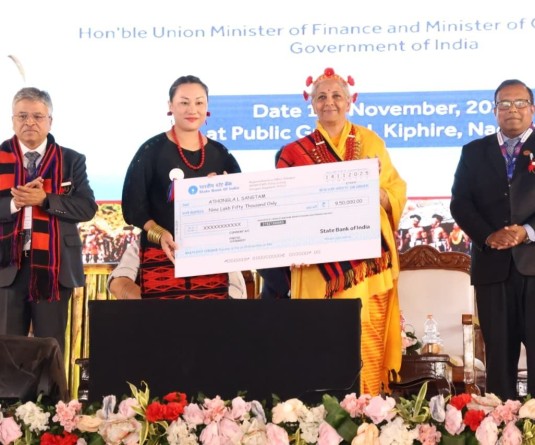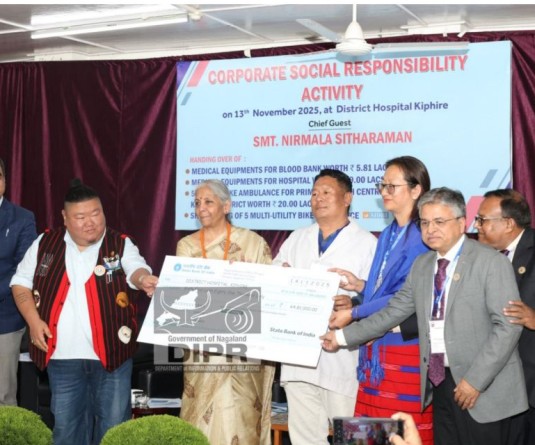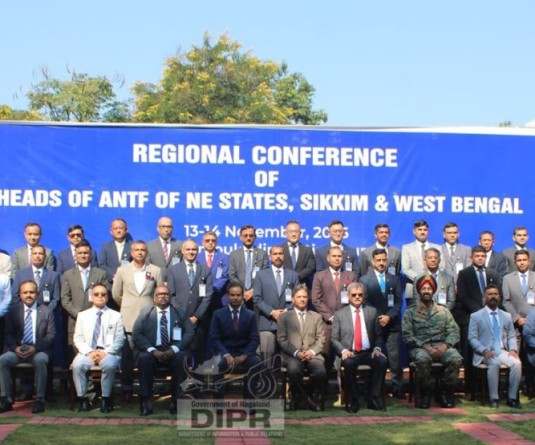The Divisional Management Unit (DMU) Longleng conducted a two-day intrastate exposure visit to Mokokchung on April 15 and 16.

LONGLENG, APRIL 17 (MExN): The Divisional Management Unit (DMU) Longleng conducted a two-day intrastate exposure visit to Mokokchung on April 15 and 16, aimed at fostering knowledge sharing and motivation among Joint Forest Management Committees (JFMCs) involved in conservation and livelihood initiatives under the Japan International Cooperation Agency (JICA)-funded Nagaland Forest Management Project (NFMP).

Organized by the Divisional Forest Office and DMU Mokokchung, the program included visits to Mongsenyimti and Sungratsu villages. The 22-member visiting team from Longleng included the Range Forest Officer (RFO)-cum-FMU Head Chepeu Koza, NGO representatives, subject experts and members from six JFMC villages.
On the first day, the team visited Mongsenyimti village, where they observed various community-led development projects such as the construction of a kitchen at the village court house and procurement of community hall furniture through Entry Point Activities (EPA). The visit also included a tour of Water Harvesting Structures (WHS) and nursery plantations. A joint interactive session facilitated discussions on project experiences, challenges in seedling maintenance, and best practices in nursery management.

Mongsenyimti JFMC executives shared insights into JFMC responsibilities and community record management, while village council members encouraged participants to continue their conservation efforts.
The second day of the program took place in Sungratsu village, where visiting members were welcomed by the local JFMC along with representatives from Mopungchuket.
Participants were divided into three groups to visit project sites, including plantation areas, water pipe replacement under EPA, and a JICA Conservation Cluster (JCC) model area.
Each group engaged in discussions on technical challenges and learning outcomes related to forestry models, SHG (Self Help Group) activities, and local conservation practices. SHG members showcased their products and tools, including handmade equipment used in processing Nuoshi, a local yam leaf product.

The exposure trip concluded with a debriefing session where observations were presented and participants were encouraged to apply the knowledge gained. Officials from both DMU Longleng and DMU Mokokchung emphasized continued collaboration and preparedness for future planning.
Organizers described the visit as a successful platform for mutual learning and motivation among communities engaged in sustainable forest and livelihood development.







